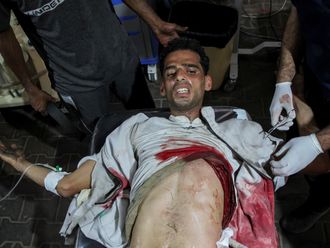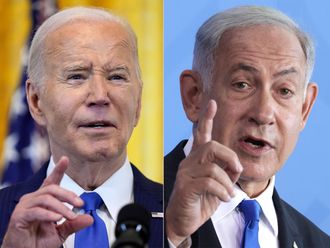Ankara: Turkish President Tayyip Erdogan said on Tuesday it was impossible to continue a peace process with Kurdish militants and urged parliament to strip politicians with links to “terrorist groups” of immunity from prosecution.
His comments come days after the Turkish air force bombed camps in northern Iraq belonging to the Kurdistan Workers Party (PKK), following a series of attacks on police officers and soldiers blamed on the Kurdish militant group.
The PKK said the air strikes, launched virtually in parallel with strikes against Daesh terrorists in Syria, rendered the peace process meaningless but stopped short of formally pulling out.
“It is not possible for us to continue the peace process with those who threaten our national unity and brotherhood,” Erdogan told a news conference in Ankara before departing on an official visit to China.
Western allies have said they recognise Turkey’s right to self-defence but have urged the NATO member not to allow peace efforts with the PKK to collapse. While deeming the PKK a terrorist organisation, Washington depends heavily on allied Syrian Kurdish fighters in battling Daesh in Syria.
An emergency NATO meeting in Brussels on Tuesday offered political support for Turkey’s campaigns in Syria and Iraq, and Erdogan signalled Turkey may have a “duty” to become more involved.
Western allies are concerned that Erdogan should not abandon several years of work on a peace process with the PKK, which has entailed giving Kurds more cultural rights with the prospect, over time, of greater autonomy in the southeastern regions where they constitute a majority.
“Dangerous rhetorics in Turkey against HDP, which won 6 million votes in last elections. Time to face that reality,” the European parliament’s Turkey rapporteur Kati Piri wrote on Twitter.
Some Kurdish activists have accused Erdogan of deliberately refraining from action in the past against Daesh, seeing them as a counter-weight to Kurdish fighters. Such a policy, they say, led directly to last week’s suicide bombing in southeast Turkey that killed 32 and has been blamed on the Islamist militant group.
Turkish officials deny this and also reject the notion that the action against the PKK is motivated by domestic politics, pointing to a series of militant attacks on the security forces in recent weeks.











